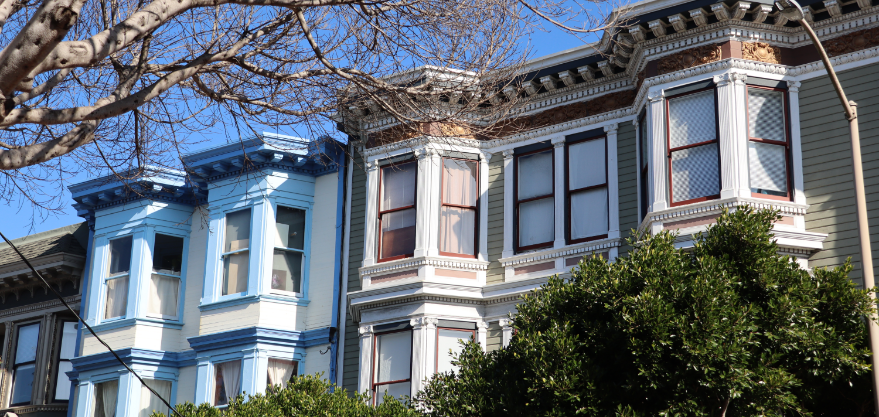
Table of Contents
ToggleWhat to Know About STR Rules in Claremont Before You List Your Home
Short-term rentals like those listed on Airbnb and VRBO have become a popular way for property owners to make extra income. Some have even turned the concept of home sharing into a full-time business that generates consistent revenue year in and year out. But before you create your Airbnb account and open your primary residence, spare dwelling unit, or second residential property to guests, it’s important to know whether your vacation rental is actually approved to operate in the city by the Claremont City Council.
Many cities, specifically the Planning Commission or City Council in those cities, have specific regulations, restrictions, or even outright bans on short-term rentals, and violating these ordinances can lead to hefty fines. In this blog, we’ll walk you through Claremont’s short term rental ordinance and its historical enforcement rates so you’ll know if you fall in line with the Planning Commission’s municipal code targeting short-term rentals.
Short Term Rentals Were Previously Not Permitted in Claremont
Understanding the existing short term rental ordinance is important because historically, the Claremont City Council has taken a strict approach to short-term rentals. In fact, up until 2025, there was a long standing prohibition on them. Although short-term rentals were not allowed in the city, whether used for commercial events or lodging, the enforcement was lacking. Though officially banned, short-term rentals were common in the city due, in part, to the lack of ongoing enforcement. Per official reports, there were 81 short-term rentals operating in the city in 2024; 79% were for entire homes.
After push back from renters rights groups about the impact short-term rentals have on long-term rental units in the city, the City Council began the discussion about developing an ordinance in 2020, but the meetings and conversations quickly ran dry. In 2025, the proposed ordinance was finalized and reflected in the Claremont municipal code. In the next section, we’ll continue the discussion around short-term rentals in Claremont, including the main points of the proposed ordinance and how it can impact property owners who are considering creating a listing and entering the short-term rental space.

Why Understanding the City of Claremont’s STR Rules Matters
The trend of tightening short-term rental regulations is not isolated to Claremont. Across Los Angeles County, there has been a concerted effort to curb unregulated STRs, regardless of the district its located in. Listing a dwelling unit on Airbnb or VRBO without the necessary permits can lead to significant consequences, including fines, forced de-listings, community impacts, or legal action.
Given these considerations, it’s crucial for property owners in Claremont to stay informed about the proposed ordinance so their own residential properties remain compliant and don’t negatively impact their community. Here’s a quick look at the highlights from the Claremont City Council staff report from May 2025:
- Short-term rental operators would need to obtain a Conditional Use Permit for each dwelling they are interested in listing.
- The short-term rental operator would be required to provide off-street parking-- one vehicle per bedroom, either on a driveway or in another space away from the street.
- Landlords are not allowed to evict tenants for the purpose of converting the dwelling unit into a short term rental or other type of lodging unit.
- Overnight occupancy is limited to eight.
- Operators must establish that the short-term rental is their primary residence.
- No events or business rentals are allowed in the community.
- Non-compliance with the resolution can result in fees for the property owner.
- Entire homes are not allowed under the existing ordinance.
- The owner must be available in person to deal with any issues related to the building or rental.
- There are limitations related to zoning, based on City Council districts.
- No commercial buildings are allowed to be booked or reserved as a short-term rental.
- All operators must adhere to Good Neighbor policies, which intend to enhance respect and avoid the need for conflict resolution meetings between hosts and their neighbors.
For additional information about the regulation and for a complete look at the City Council staff report which was submitted after the meeting, please click here.

Grandfathered STR Permits: Do They Exist?
Unlike other cities that allowed existing STRs to continue operating under defined “grandfather” clauses—often requiring registration, photos, or transitional permits—the Claremont City Council has taken a stricter stance regarding this chapter.
Cities like Pasadena and Santa Monica, for example, created pathways for some pre-existing short-term rentals to continue operating legally, provided they met certain conditions like primary residency, district requirements, or owner-occupancy. These policies helped accommodate residents who had been operating in good faith before new laws were enacted by the planning department.
Claremont, by contrast, has made clear that existing hosts are unlikely to receive automatic STR approval under current rules. While future changes aren’t off the table, Claremont continues to emphasize preserving its residential character over expanding the adoption of short-term rental opportunities.
In short, if you’re considering listing a property in Claremont as a short-term rental, it’s essential to proceed with caution. Operating without a permit could lead to fines, forced removal from hosting platforms, or legal action. Staying engaged in city discussions and monitoring council agendas is the best way to stay informed as the conversation around STRs evolves.
The City of Claremont currently has an Application Form you can fill out for a hosted STR within a resident’s primary residence or an eligible accessory structure on the same property.
Nearby Cities with More Flexible STR Policies
While the Claremont City Council maintains a strict stance on short-term rentals, neighboring cities have adopted varying approaches:
- San Dimas: Currently, San Dimas does not permit short-term rentals.
- Pomona: Pomona's City Council allows short-term rentals with a permit. Operators must meet eligibility requirements, including owner-occupancy and obtaining a zoning clearance letter. Un-hosted stays are prohibited, and operators must collect and remit a 10% transient occupancy tax.
- Upland: Upland permits short-term rentals through an Administrative Use Permit, which is non-transferable and requires the host to be the property owner or an authorized tenant. Un-hosted stays are limited to 120 days per year, and operators must comply with various operational standards, including parking requirements and noise regulations.

How Meehan Property Management Can Help
Successfully managing a short-term rental is about more than just making your listing look good—it’s about complying with local laws and ordinances, minimizing risks, and delivering a seamless experience for guests. That’s where Meehan Property Management comes in.
As a trusted local expert in short-term rental operations, we offer professional co-hosting services tailored to your property’s location and legal standing. From listing management and guest communication to calendar optimization and pricing strategy, we handle the details so you don’t have to.
But perhaps more importantly, we specialize in compliance management—helping property owners avoid costly mistakes. If you’re unsure whether short-term rentals are allowed in your city, we’ll help you:
- Understand local zoning rules and restrictions
- Navigate the permit and registration process (where legal)
- Prepare documentation for city approvals or inspections
- Stay on top of occupancy taxes, platform policies, and renewal deadlines
Whether you’re just getting started or already hosting and want peace of mind, Meehan Property Management offers smart, hands-on support to keep your property legal, efficient, and profitable.
Ready to get started? Contact Meehan Property Management today for a free consultation or property assessment.
Let’s take the stress out of STR compliance and help your rental thrive—legally and effortlessly.
Short-Term Rentals in Claremont: FAQs
Does Claremont's Planning Commission Allow Short-Term Rentals?
Yes, the Planning Commission currently allows short-term rentals to operate in the city, under the department’s short-term rental ordinance. If your short-term rental permit is approved, you can legally create an Airbnb listing, granted you provide parking for guest vehicles and comply with other important points outlined in the ordinance.
When did the City Council allow Short-Term Rentals in Claremont?
The City Council voted on establishing the ordinance in May 2025 and the adoption of the ordinance went into effect in June 2025.

